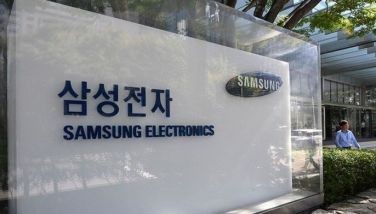Internet expands horizons of students in remote communities in Mindanao
Tupi, Leah’s hometown, is a largely agricultural community, and had no Internet connection and, as is the case with many schools throughout Mindanao, neither reference materials nor access to the Internet were available from her school. The Internet café was her only option for finding the needed information. Leah knew that her frequent trips made a dent on her family’s limited financial resources. But neither she nor her family had a choice.
“I hardly touched my allowance just so I could have enough money for my trips. But it was the only way I could access the information I needed for my class projects and assignments,” she recalls.
Jezreel Tabago, 16, a graduating student of Lutayan National High School in Isulan, Sultan Kudarat, became uneasy whenever he was in the company of students coming from schools in Mindanao’s more urbanized areas such as Davao or Cagayan de Oro.
Jezreel knew that his knowledge of computers and Internet skills were at most rudimentary in comparison to other students with more ready access to computers and the Internet.
“I avoided joining their discussions because they might ask me computer-related questions and I could not answer them. ‘Download’ and ‘e-mail’ seemed like foreign words to me,” relates Jezreel.
Things dramatically changed for Leah, Jezreel and their fellow students when their schools became partners of USAID’s Computer Literacy and Internet Connection (CLIC) Program last year. The CLIC provided 10 computers and high-speed satellite Internet connection to Tupi NHS, while Lutayan NHS received seven computers and high-speed Internet connection. Both schools also received various computer reference materials and extensive training for selected teachers.
Computer literacy
The CLIC Program, implemented by USAID’s Growth with Equity in Mindanao (GEM) Program, promotes computer literacy and the use of information technology among students and teachers in the Autonomous Region in Muslim Mindanao (ARMM) and other conflict-affected areas in Mindanao in line with USAID’s efforts to help improve learning conditions.
By December this year, CLIC will have assisted 670 schools in the ARMM and other conflict-affected areas in Mindanao.
The CLIC Program is a partnership between USAID and individual Parent-Teacher-Community Associations (PTCAs), which agree to pay the full cost of the Internet subscriptions once the one-year subscription provided by CLIC expires.
Leah no longer scrimps on her allowance to save for bus fare and Internet rental. After class, she goes to the school’s computer lab and presents her Internet card, which allows her to use the CLIC computer and Internet facilities for at least an hour a day for research and e-mail.
Leah says the CLIC resources, particularly the Internet connection, have been a big help to her and her classmates, especially to those who could not afford to travel all the way to Koronadal to do their research online.
“Now that our school has an Internet connection, I’m able to save money for my other school projects,” says Leah. More importantly, she says her grades have improved because she now has more time to study and focus on other class projects.
For his part, Jezreel says he no longer hesitates to engage in discussions with his counterparts during inter-school activities or competitions. He has a new passion — information technology — and frequently uses the Internet connection at his school to chat with friends and relatives in other parts of the country — and elsewhere in the world.
“I just love computers. Now I can download all the information I need for my research projects and assignments through a click of the mouse,” he says, adding that he would like to take up computer science in college and someday get a job in the ICT sector.
Challenges
Darwin Locsin, Tupi NHS’ computer instructor, recalls the challenges he confronted before the CLIC Internet connection was installed. “The most difficult part was teaching my students complex Internet-based programs such as Web design and computer programming without having access to the Internet,” he recounts.
Every weekend, he would travel to Koronadal City to log on to the Internet and update himself on the latest trends in Web design and protocols. He would then save the information and download it onto his personal computer for the following week’s lectures. These trips entailed additional expenses, but he didn’t mind as long as he was able to make his lectures interesting and comprehensible.
“During my lectures, I just tried to be creative in order to compensate for the lack of Internet resources. I encouraged my students to use their imagination and learn to go beyond our computer lab’s current limitations,” Locsin explains.
And when the school received the CLIC computer package, students and teachers celebrated as it was the fulfillment of their long-held dream to have an Internet connection.
“When the CLIC team installed the Internet connection, one of my students dashed to one of the computers and logged on to the Web. Everyone cheered as the school officially became a member of the global information village,” he recounts.
To ensure the sustainability of the Internet connection and the computer resources, the school’s PTCA has agreed that students must pay a minimal fee of P40 a month. Locsin says that from their monthly collections, the school was able to purchase five more computers and an LCD projector.
EASE Program
The Tupi NHS was also a recent beneficiary of USAID’s Education Awareness and Support Effort (EASE), which matched the funds raised by the school’s PTCA. Funds were used to acquire five new computers for the computer laboratory.
The EASE Program works in collaboration with PTCAs and various civic and business organizations to improve specific education programs in selected EASE partner-schools. To date, it has provided matching grants totaling more than $500,000 to more than 525 schools in conflict-affected areas in Mindanao.
According to Locsin, PTCA members have been very supportive of the school’s efforts to enhance its existing ICT curriculum. In fact, when he met with parents to discuss the school’s application for the EASE matching grant, they unanimously pledged their full support for the project.
The strong partnership between the school’s administration and the PTCA has reaped dividends, as the Tupi NHS is now considered a model school in the Socsksargen (South Cotabato, Sultan Kudarat, Sarangani and General Santos City) area due to its strong and innovative ICT-based curriculum.
“We are very thankful to USAID and GEM for the assistance they have provided to our school. Now that we are connected to the information superhighway, the possibilities for our students are limitless,” Locsin says.
- Latest
























